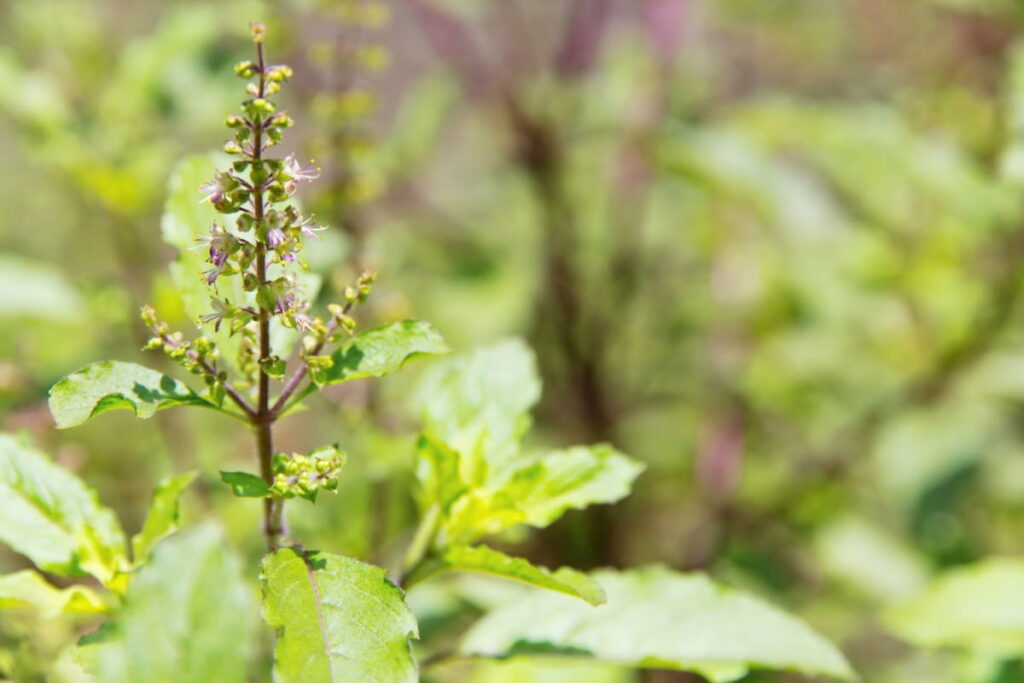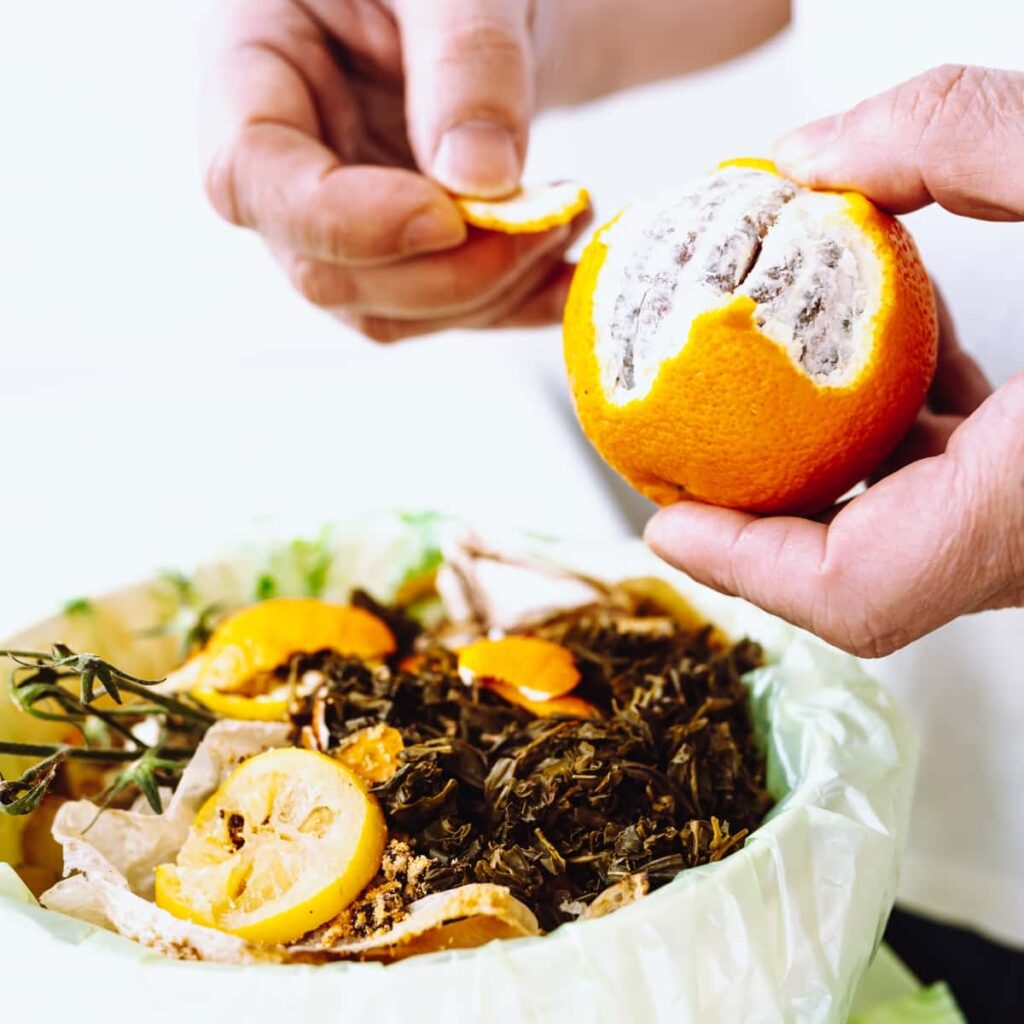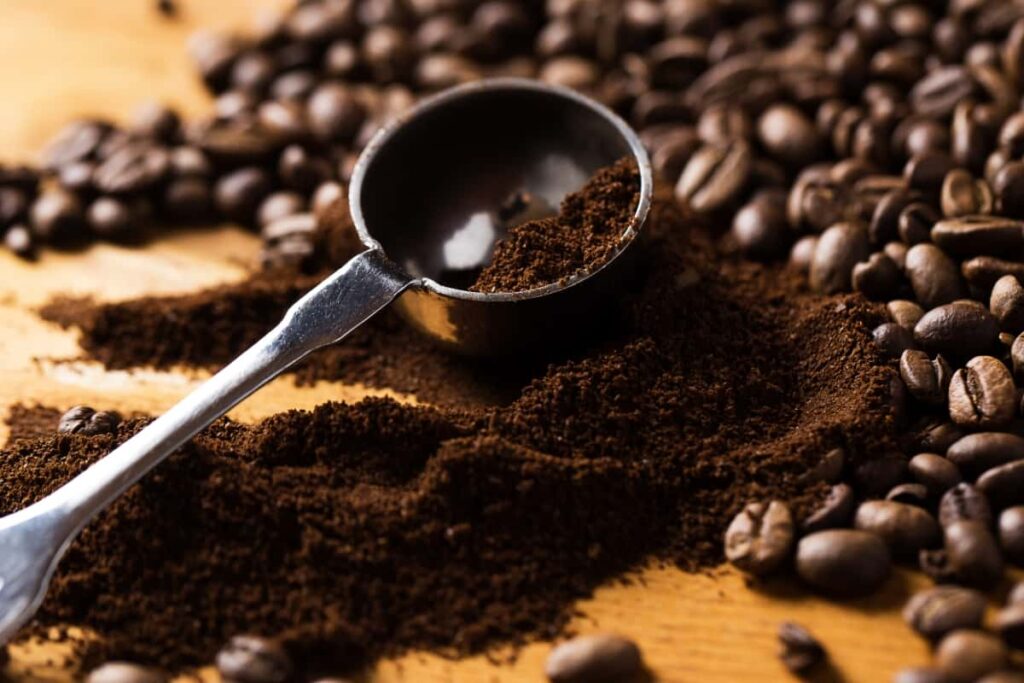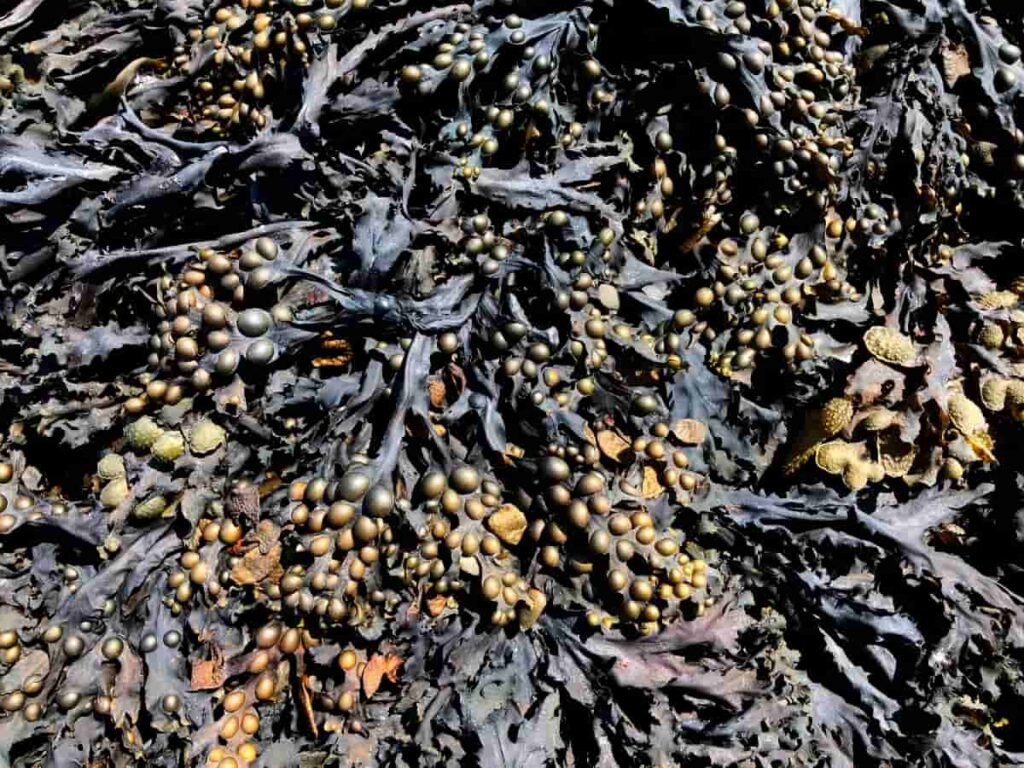Tulsi, also known as Holy Basil, is a revered and aromatic shrub that belongs to the basil family Lamiaceae. With its scientific name, Ocimum tenuiflorum, Tulsi holds great significance in various cultures and has been used for centuries. To ensure your potted Tulsi thrives in optimum conditions and produces vibrant leaves packed with nutrients, using homemade fertilizers can play a crucial role.

10 Homemade Fertilizers for Tulsi
Compost-Based Fertilizers
Compost Tea: Nutrient-Rich Liquid Fertilizer from Compost
Compost tea is a fantastic homemade fertilizer for Tulsi in pots. The making of the compost tea process involves adding a mixture of well-rotted organic matter, such as kitchen scraps or yard waste, into a large container filled with water. Then, let the mixture sit for several days or weeks, stirring occasionally to aerate it. When you use compost tea on your potted Tulsi plant, you’re essentially giving it a supercharged drink full of beneficial microorganisms and trace elements.
Composted Kitchen Scraps: Homemade Compost for Tulsi
Composting is a process to reduce waste and create nutrient-rich soil for your plants, including Tulsi. To make compost from kitchen scraps, start by collecting organic materials in a designated container. Using composted kitchen scraps as fertilizer has several benefits. Next, add some “brown” materials, such as dried leaves, to balance the nitrogen-rich kitchen scraps. Mix everything regularly and keep the pile moist but not soggy.
Mineral Supplements
Epsom Salt Solution: Promoting Healthy Growth with Magnesium
Epsom salt, scientifically known as magnesium sulfate, is a mineral supplement that can work wonders for your potted Tulsi plant. Magnesium is crucial for chlorophyll production, the green pigment responsible for photosynthesis.
To make an Epsom salt solution for your Tulsi plant, dissolve about one tablespoon of Epsom salt in one gallon of water. Stir well until the salt completely dissolves. You can use this solution to water your potted Holy Basil every two weeks during the growing season.
Eggshell Powder: Providing Calcium for Strong Cell Walls
Eggshells, typically discarded as waste, can be a valuable source of calcium for your potted Tulsi plant. To make eggshell powder, start by rinsing and drying out the eggshells thoroughly. Once dry, crush them into fine particles using a pestle or even a blender. The resulting powder is rich in calcium carbonate, which plants easily absorb.
Organic Kitchen Waste Fertilizers
Banana Peel Fertilizer: Utilizing Banana Peels for Potassium
Banana peel fertilizer is an organic and cost-effective way to nourish your Tulsi plant with potassium. To make this homemade fertilizer, chop up banana peels and combine them in the soil around your plant. Potassium is a vital nutrient for plants as it helps regulate water movement within cells and promotes overall plant health.
In case you missed it: How to Earn 1 Lakh Per Month from Tulsi: 1 Acre Holy Basil Cultivation/Farming/Production Project Report, Cost, Profitability Analysis

Coffee Grounds: Adding Nitrogen and Acidity to the Soil
The easiest and most cost-effective homemade fertilizer for Tulsi in pots is coffee grounds. Not only do they provide a boost of nutrients, but they also help to maintain the ideal pH level for your plant. To use coffee grounds as fertilizer for Tulsi, save your used coffee grounds instead of throwing them away. Remember not to go overboard with their application, as excessive amounts may negatively affect soil pH levels.
In case you missed it: Maximizing Profits with a Comprehensive Tulsi Farming Business Plan

Aquarium and Fish Tank Fertilizers
Fish Tank Water: Nitrogen-Rich Water from Aquarium Cleaning
If you’re an aquarium enthusiast, you probably know that fish tank water can be a valuable resource for your plants. To use fish tank water as a fertilizer, ensure that it’s free from any harmful chemicals or medications that may have been used in the aquarium. Dilute it with regular tap water if needed, depending on the size of your Tulsi pot.
Seaweed and Algae Fertilizers
Seaweed Extract: Nutrient-Rich Solution from Seaweed
Seaweed extract, in particular, is a nutrient-rich solution derived from seaweed that provides numerous benefits for your holy basil. The beauty of using seaweed extract as a Tulsi fertilizer is its versatility. It can be applied to the soil or used as a foliar spray. When sprayed on the leaves, it gets absorbed quickly into the plant’s system, delivering nutrients directly where they’re needed most.
Kelp Meal: Dried and Ground Seaweed for Plant Nutrition
Kelp meal, derived from dried and ground seaweed, is a fantastic natural fertilizer for potted Tulsi plants. Seaweed is packed with important nutrients that can enhance the growth and vitality of your holy basil. Using kelp meal as a fertilizer is simple. You can apply it to the soil around your potted Tulsi or mix it into homemade compost for an extra boost.
In case you missed it: Growing Holy Basil (Tulsi) Outdoors Information

Natural Pest Repellents
Neem Cake: Pest-Repelling and Nutrient-Rich Fertilizer
Neem cake is a natural pest-repellent and nutrient-rich fertilizer that can work wonders for your potted Tulsi plants. This organic solution not only keeps pests at bay but also provides essential nutrients to promote healthy growth.
Pests like aphids, mealybugs, and spider mites can wreak havoc on your precious Tulsi plant. To use neem cake as a fertilizer, mix it into the potting soil or sprinkle it around the base of your Tulsi plant.
Neem Oil Spray: Organic Pest Control and Foliar Feeding
This organic remedy has been used for centuries in traditional medicine and agriculture. To make your neem oil spray at home, mix 1-2 teaspoons of cold-pressed neem oil with a few drops of dish detergent in a spray bottle filled with water. Shake well before each use and apply evenly on both sides of the Tulsi leaves.
Wood-Based Fertilizers
Wood Ash: Potassium-Rich Ash from Wood Burning
Wood ash is a fantastic natural fertilizer for your potted Tulsi plants. It is a byproduct of wood burning and contains high potassium levels, which is essential for plant growth and development. To use wood ash as a Tulsi plant fertilizer, sprinkle a thin layer around the base of your Tulsi plant and gently work it into the topsoil. The plant nutrients will be released into the soil over time slowly, providing nourishment to your holy basil.
Sweet Treats for Tulsi
Molasses Solution: Carbohydrate and Mineral Source for the Plant
This homemade fertilizer not only provides carbohydrates but also essential minerals that promote healthy growth in Tulsi plants. Molasses, a byproduct of sugar production, is rich in beneficial nutrients like potassium, calcium, magnesium, iron, and manganese. To make the molasses solution, mix one tablespoon of unsulfured blackstrap molasses with one gallon of water. Stir well until the molasses dissolves completely. Then, gently pour this nutrient-rich concoction around the base of your Tulsi plant.
Sugar Water: Homemade Sugar Solution for Energy
To make this natural fertilizer, all you need to do is dissolve a tablespoon of sugar in a gallon of water. Mix it well until the sugar completely dissolves, and then use this solution to water your Tulsi plant once every two weeks. The reason why sugar water works so well as a fertilizer is because it provides an instant source of carbohydrates for the plant.
Herbal Infusions
Herbal Tea Fertilizer: Nourishing Tulsi with Herbal Infusions
To begin, gather a variety of herbs such as chamomile, mint, lavender, or rosemary. Next, boil a pot of water and add a handful of these herbs. Let them steep for about 30 minutes until the water turns into a beautiful infusion. Once cooled down to room temperature, strain out the solid bits from the liquid. You now have yourself an enchanting herbal tea fertilizer.
Balancing Soil pH
Limestone Powder: Raising pH Levels for Optimal Growth
Balancing Soil pH is crucial for the optimal growth of Tulsi in pots. Limestone powder, derived from crushed limestone rocks, contains high levels of calcium carbonate. To use limestone powder as a soil amendment, sprinkle it evenly over the topsoil or mix it into the potting mixture before planting your Tulsi.
Sulfur Powder: Lowering pH Levels for Acidic-Loving Plants
Sulfur powder can be used as a fertilizer to lower the pH levels of acid-loving plants like Tulsi. Acidic soil is essential for proper nutrient absorption and optimal growth of plants like Tulsi. To use sulfur powder as a fertilizer, sprinkle a small amount around the base of your Tulsi plant and gently work it into the top layer of soil. Be careful not to overdo it since excessive amounts can harm your plants.
Conclusion
Homemade fertilizers for Tulsi in pots are natural and organic nutrient sources that you can make at home to nourish your potted holy basil plant. These homemade fertilizers provide essential minerals, vitamins, and organic matter to promote healthy growth and increase the overall vitality of your Tulsi plant. Homemade fertilizers play a crucial role in nourishing Tulsi plants grown in pots.
- Management Pests and Diseases in Your Cotton Field
- Sheep Farming Business Plan for Beginners
- Aquaponic Farming at Home: A Step-By-Step Guide
- Profitable Village Farming Business Ideas in 2024
- High-Yield Aquaculture: Fast-Growing Fish for Farming
- Effective Fish Pond Construction Techniques for Beginners
- Irrigation and Water Management in Pineapple Farming
- Blossom to Harvest: Mastering Flowering and Pollination in Papaya Farming
- Pig Fattening Essentials: From Selection to Sale for Beginners
